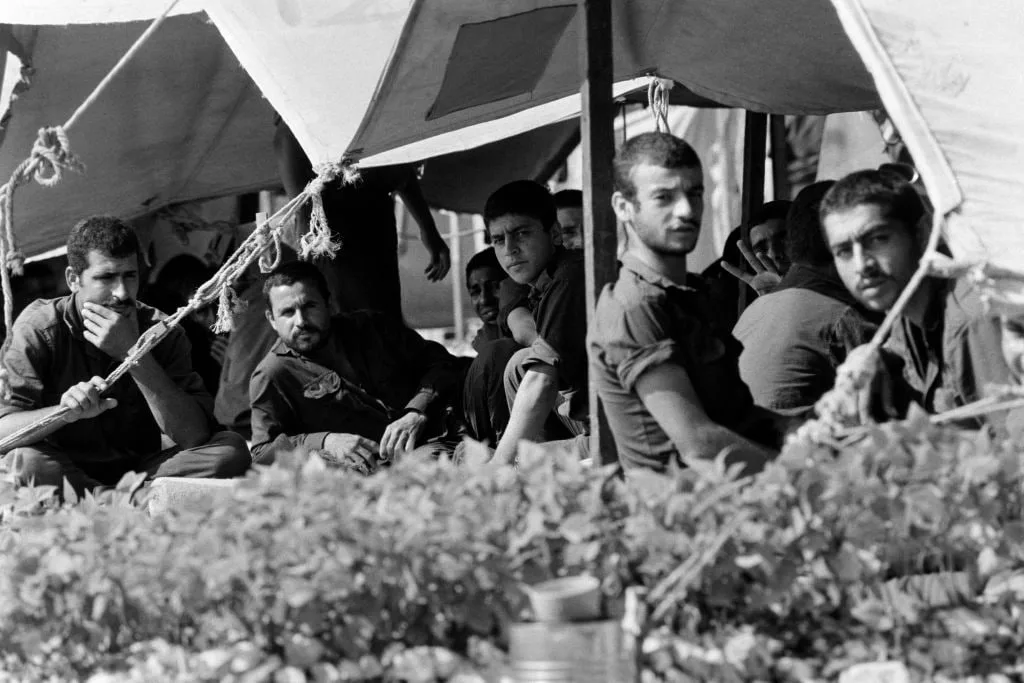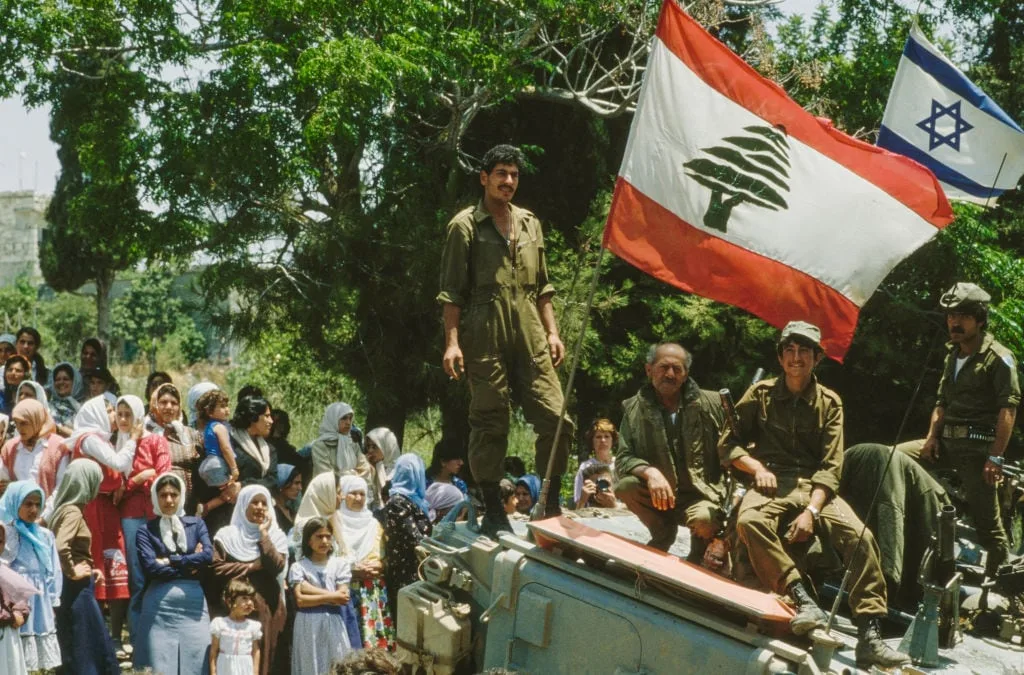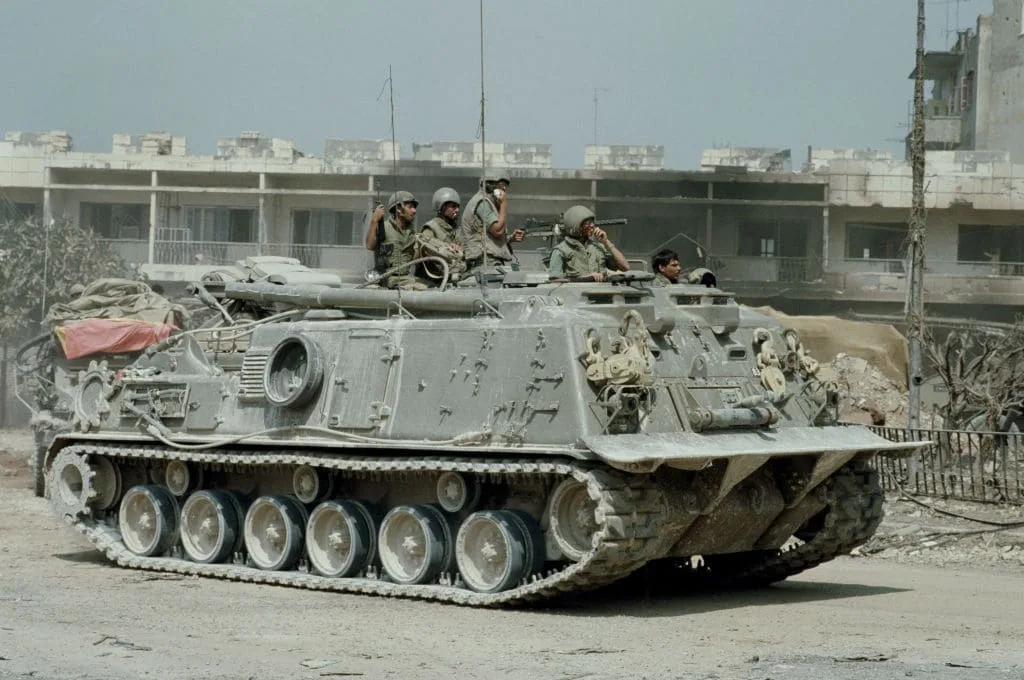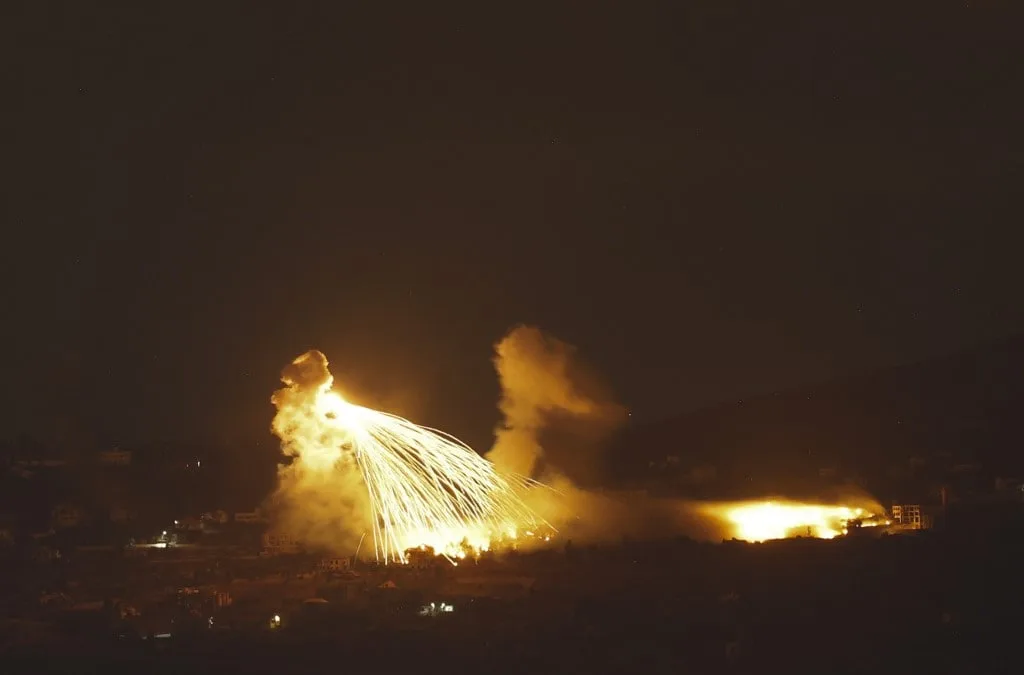Table of Contents
Israeli forces today began "ground raids" in southern Lebanese villages, targeting Hezbollah strongholds. As the Israeli invasion begins, the ghost of past incursions into the Levantine nation is still fresh in the minds of its citizens. The last invasion, the 2006 Lebanon War, was a 34-day conflict that exposed military, political, and strategic gaps on both sides. The Israeli forces, initially confident in their superiority, were soon bogged down by Hezbollah's guerilla tactics, leading to heavy losses and a stalemate that both sides declared as a victory.
Now, nearly two decades later, Israel's military appears to have internalised the lessons from that conflict, preparing for what may be the most decisive military engagement in its history with Hezbollah, whose leader Hassan Nasrallah was killed in an airstrike in Beirut two days ago.
1982: The First Invasion
Israel's invasion of Lebanon in 1982 which gave birth to Hezbollah, was born out of the Israeli invasion of Lebanon in 1982. With Israel pushing into Lebanese territory, particularly in the country's eastern Bekaa region, Hezbollah emerged as a resistance force with the backing of Iran's Revolutionary Guards Corps (IRGC). Over time, Hezbollah would become one of the most formidable non-state actors in the Middle East and a persistent thorn in Israel's side.

Lebanese military forces during the 1982 war with Israel
Photo Credit: Getty
Three years later, in 1985, Hezbollah took a more formal shape with the establishment of its military arm, the Islamic Resistance in Lebanon. Early operations focused on suicide bombings and guerrilla warfare, particularly targeting Israeli forces in the south, often in coordination with the South Lebanon Army (SLA), a mostly Christian militia allied with Israel.
The 2006 Lebanon War
The 2006 Lebanon War began on July 12, when Hezbollah fighters staged a cross-border raid, capturing two Israeli soldiers and killing three others. What followed was an escalation of military conflict that saw Israeli forces pushing into southern Lebanon to confront Hezbollah. However, from the outset, Israel's military faced unexpected resistance.
Less than a mile into Lebanese territory, Israeli soldiers found themselves entangled in fierce battles with Hezbollah. The 34-day conflict witnessed the deaths of 121 Israeli soldiers, the destruction of several tanks by shoulder-fired missiles, and Hezbollah's continued ability to launch rocket attacks into Israel.

Israeli tanks roll into Lebanon in 1982.
Photo Credit: Getty
Former Israeli Prime Minister Ehud Olmert, who led the country during the war, later reflected on the conflict's shortcomings, stating that the Israeli army had been unprepared for a comprehensive ground operation. The Winograd Commission, a government-appointed body tasked with evaluating the war's outcome, accused the Israeli leadership of rushing into a poorly planned operation. Intelligence failures, logistical missteps, and underestimating Hezbollah's capabilities led to what the commission described as a "serious, missed opportunity" to deal a more decisive blow to the militant group.
Despite these setbacks, the war officially ended with both Israel and Hezbollah claiming victory. Israel's military had inflicted significant damage on Hezbollah, while Hezbollah managed to withstand the assault and continue launching attacks until the ceasefire brokered by the United Nations took effect.
Learning From The Past
Today, as Israeli forces prepare for another potential invasion of Lebanon, the lessons of 2006 are key to their strategy. In recent weeks, Israel has employed a pre-emptive approach, targeting Hezbollah's logistics and communication infrastructure. Key weapons depots have been destroyed, and senior Hezbollah commanders, including Nasrallah, have been eliminated. This decapitation of Hezbollah's leadership has shocked the organisation, which had built its identity around resisting Israeli incursions.

Israeli tank in Lebanon during the 2006 war.
Photo Credit: Getty
These attacks are the culmination of years of intelligence gathering and military planning. Unlike in 2006, when Israeli forces struggled to locate and target Hezbollah's positions, Israel today appears to have built a robust intelligence network capable of pinpointing key Hezbollah assets. Military exercises, refined battle plans, and a multilayered air defence system now form the backbone of Israel's defensive and offensive might.
Hezbollah, which has amassed an arsenal of an estimated 150,000 rockets and missiles, has been significantly weakened in recent weeks. With its leadership in disarray and hundreds of its fighters either killed or wounded, it is unclear how effectively the group can mount a challenge.
Risk Of Regional Escalation
While Israel's military might has grown significantly since 2006, the landscape of the region has also changed. One of the most pressing concerns for Israel is the possibility of the conflict expanding beyond Lebanon's borders. Hezbollah's ties to Iran, and the growing coordination between Iran-backed militias in Iraq, Syria, and Yemen, present a real risk of the war becoming a regionwide conflagration. Iran's Axis Of Resistance – a collective of armed Shia militias around the Middle East – is capable of launching ballistic missiles into Israel.
Tehran, which has invested heavily in Hezbollah's military infrastructure over the past two decades, may not sit idly by if Israel continues its offensive. In such a scenario, the risk of Iranian forces or their proxies becoming directly involved in the conflict increases, potentially drawing the United States and other regional powers into the fray.
Challenges Of A Ground Invasion
A ground invasion of Lebanon comes with significant risks. Hezbollah, while weakened, still poses a threat to Israeli forces, particularly in close-quarters combat. Over the years, Hezbollah has developed extensive defensive infrastructure, including tunnels, bunkers, and fortified positions, which could turn any ground operation into a prolonged and bloody conflict – as evident from Israel's ongoing war in Gaza where they have faced similar threats.

A fire following Israeli bombardment on an area of south Lebanon.
Photo Credit: AFP
Hezbollah's fighters are also battle-hardened from their involvement in Syria's civil war, where they fought alongside Syrian President Bashar al-Assad's forces against a variety of rebel groups.
Adding to these challenges is the terrain of southern Lebanon, a region that Hezbollah knows intimately. The dense urban and mountainous landscapes provide ample cover for guerrilla fighters, making it difficult for Israeli forces to engage Hezbollah without suffering significant casualties.
Hezbollah's Response
Hezbollah, for its part, has also learned from its past encounters with Israel. Following the 2006 conflict, former Hezbollah leader Hasan Nasrallah admitted that the group had miscalculated Israel's response to its cross-border raid. In the years since, with the backing of Iran, Hezbollah has bolstered its military capabilities. It has amassed a vast arsenal of rockets, missiles, and drones, while also constructing elaborate defences in southern Lebanon.
However, with Nasrallah and other senior Hezbollah commanders now dead, the organisation's ability to coordinate a coherent response to Israel's strikes is in question. The extent to which Hezbollah can resist Israel's military onslaught may ultimately depend on Iran's role in the conflict. Tehran has long used Hezbollah as a proxy to exert influence in the region and challenge Israeli power. With Hezbollah now reeling from Israel's recent attacks, Iran may seek to provide additional support to prevent the collapse of its most important ally in the Levant.

